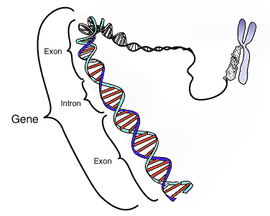Source: Wikipedia
Several teams of American researchers have identified gene patterns linked with extreme old age.
They have found a pattern of genes that predicts with more accuracy than ever before who might live to be 100 or older - even if they have other genes linked with disease.
They studied more than 1,000 people who lived to be 100 or more and matched them to 1,200 other people to identify the genetic patterns more common in the 100-year-olds using an approach called a genome-wide association study.
To their surprise, the longest-lived people had many of the same genes linked with diseases as everyone else. Their old-age genes appeared to cancel out the effects of the disease genes.
"A lot of people might ask, 'Well, who would want to live to 100 because they think they have every age-related disease under the sun and are on death's doorstep, and certainly have Alzheimer's', but this isn't true," Dr Perls told reporters in a telephone briefing.
"We have noted in previous work that 90% of centenarians are disability-free at the average age of 93. We had long hypothesised that to get to 100 you have to have a relative lack of disease-associated variants. But in this case, we're finding that not to be the case."
They identified 19 patterns among about 150 genes and said these patterns predicted with 77% accuracy who would be in the extreme old-age group, as reported by Reuters.
Their findings, published in Friday's issue of the journal Science, offer the tantalising possibility of predicting who might hope for a longer life.
The researchers led by Paola Sebastiani and Dr Thomas Perls at Boston University say, their research provides the best accuracy.
They also cast doubt on the accuracy of tests being marketed now that offer to predict a person's risk of chronic diseases such as Alzheimer's.
******
Mr Innokenty Osadchy, a 35-year-old investment banker in Moscow is ready to pay a small fortune to freeze his brain until future technology allows him to continue his life - after being transplanted into a new body and resuscitated.
He is certain he has found a loophole out of death.
"I don't ever want to die... It wouldn't suit me," he said .
"Why do I have to die in a couple decades? I don't see any logic in this,"
"It won't be another life, it'll be the continuation of my life. "I don't ever want to die ever. Not in a year, not in a million years." Mr Osadchy told AFP.
Mr Osadchy and other clients of Russian cryonics company KrioRus believe the brain operates like a computer hard-drive and its contents can be frozen and stored for the future.

Ms Medvedev, a smart executive sporting a suit and an iPad said to AFP, "We tell our clients it's cheaper, safer and probably better preservation just to freeze the brain."
Head of Russian cryonics firm KrioRus Danila Medvedev looks inside a liquid nitrogen filled human storage unit just outside Moscow. (Photo courtesy: AFP)
***Should the American gene researchers work together with the Russian team, will these 'immortals' be staying in Mars, Jupiter, Saturn, and beyond...?



links of london, marc jacobs, toms shoes, thomas sabo, doudoune canada goose, canada goose uk, moncler, louis vuitton, hollister, montre pas cher, sac louis vuitton pas cher, pandora charms, canada goose, ugg,uggs,uggs canada, canada goose, wedding dresses, juicy couture outlet, canada goose outlet, louis vuitton, replica watches, juicy couture outlet, moncler, swarovski crystal, bottes ugg, ugg pas cher, louis vuitton, pandora jewelry, pandora jewelry, ugg,ugg australia,ugg italia, pandora charms, moncler, ugg boots uk, louis vuitton, moncler, moncler, moncler, canada goose, canada goose outlet, karen millen, moncler, moncler outlet, canada goose, swarovski, coach outlet, supra shoes
ReplyDeleteoakley, valentino shoes, ray ban, insanity workout, instyler, hollister, soccer shoes, nike air max, bottega veneta, converse, nike roshe, beats by dre, ralph lauren, nike trainers, louboutin, new balance, converse outlet, hollister, longchamp, north face outlet, soccer jerseys, birkin bag, nike air max, lululemon, asics running shoes, lancel, ghd, mcm handbags, chi flat iron, abercrombie and fitch, hollister, mont blanc, herve leger, nfl jerseys, iphone cases, reebok shoes, vans, nike huarache, baseball bats, mac cosmetics, wedding dresses, gucci, ferragamo shoes, p90x workout, vans shoes, north face outlet, timberland boots, celine handbags, babyliss, jimmy choo shoes
ReplyDeletereplica watches, jordan shoes, longchamp outlet, air jordan pas cher, cheap oakley sunglasses, christian louboutin outlet, longchamp pas cher, longchamp outlet, sac longchamp, tiffany and co, ray ban sunglasses, louis vuitton, nike free, tiffany jewelry, nike air max, polo ralph lauren outlet, ray ban sunglasses, ugg boots, ray ban sunglasses, chanel handbags, louis vuitton, oakley sunglasses, louboutin outlet, louboutin, louboutin pas cher, prada handbags, prada outlet, kate spade outlet, longchamp, louis vuitton, uggs on sale, michael kors, nike outlet, louboutin shoes, nike air max, gucci outlet, nike roshe run, air max, nike free, oakley sunglasses, ugg boots, ralph lauren pas cher, replica watches, louis vuitton outlet, louis vuitton outlet, polo ralph lauren outlet, burberry, tory burch outlet
ReplyDelete